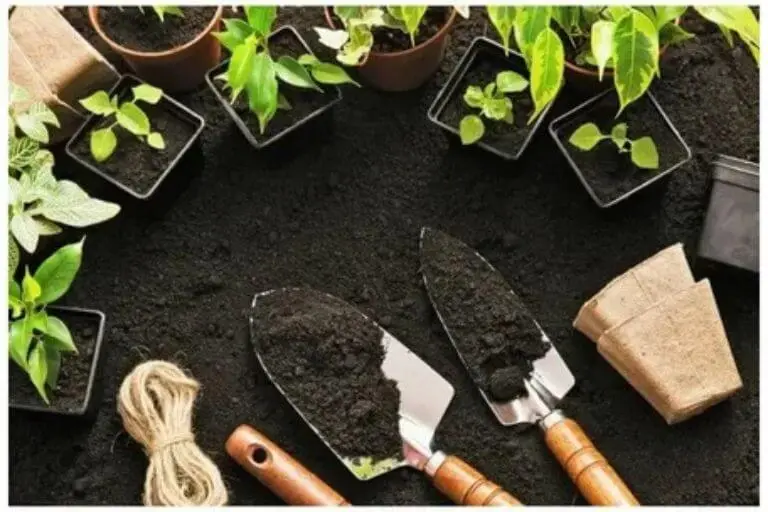
Gardening is more than just a hobby; it’s a journey that transforms your outdoor or indoor space into a haven of beauty and tranquility. For many, the art of nurturing plants is both therapeutic and rewarding. However, achieving a thriving garden requires knowledge, effort, and patience. Whether you’re a seasoned gardener or just starting, this article will provide you with actionable gardening tips to grow a healthy and vibrant garden.

A lush, thriving garden doesn’t happen overnight. It’s a labor of love that involves understanding the unique needs of your plants, the conditions they grow best in, and how to maintain their health over time. With the right gardening tips, anyone can cultivate a garden that’s not only beautiful but also a reflection of their hard work and dedication.
In this comprehensive guide, we’ll explore practical gardening tips that cover everything from soil preparation and plant selection to pest control and seasonal maintenance. Whether your garden is an expansive backyard, a cozy balcony, or an indoor sanctuary, these tips will set you on the path to success.
Essential Gardening Tips for Beginners
Choosing the Right Plants for Your Garden
One of the first steps to a healthy garden is selecting plants that suit your space and climate. Here’s how to choose wisely:
- Assess Your Climate: Choose plants that thrive in your local climate conditions. Native plants often require less maintenance and are more resilient to pests.
- Sunlight Requirements: Understand the sunlight in your garden. Some plants love full sun, while others prefer shaded areas.
- Purpose of the Garden: Decide the goal of your garden—whether it’s to grow flowers, vegetables, or a mix of both. This will help narrow down your plant choices.
Preparing the Soil for Planting
Soil is the foundation of a healthy garden. Proper soil preparation ensures your plants receive the nutrients they need. Follow these tips:
- Test the Soil: Use a soil testing kit to check for pH levels and nutrient content. Amend the soil as needed with compost or organic matter.
- Loosen the Soil: Aerate the soil by turning it over with a shovel or garden fork. This improves drainage and allows roots to penetrate more easily.
- Add Organic Matter: Compost, manure, and leaf mold are excellent organic materials that enrich the soil and improve its structure.
Caring for Your Garden

Watering Your Plants Effectively
Watering is a critical aspect of gardening, but it’s easy to overdo or underdo it. Here’s how to get it right:
- Morning is Best: Water your plants early in the morning to minimize evaporation and allow the leaves to dry before evening.
- Check Soil Moisture: Stick your finger into the soil—if the top inch is dry, it’s time to water.
- Avoid Overwatering: Overwatering can lead to root rot and attract pests. Ensure proper drainage in pots and garden beds.
Techniques for Conserving Water
- Use mulch to retain soil moisture and reduce evaporation.
- Install drip irrigation systems for efficient watering.
- Group plants with similar water needs together.
Fertilizing Your Garden
Fertilizers provide essential nutrients that might be lacking in your soil. Here’s how to fertilize effectively:
- Know Your Plants’ Needs: Different plants have different nutrient requirements. Research your plants and choose a fertilizer accordingly.
- Use Organic Fertilizers: Organic options like bone meal, fish emulsion, and compost are sustainable and improve soil health.
- Timing Matters: Fertilize during the growing season for most plants. Avoid fertilizing during dormant periods.
Overcoming Challenges in Gardening
Managing Pests and Diseases
Pests and diseases are common challenges, but with preventive measures, you can protect your garden. Follow these tips:
- Inspect Regularly: Check your plants for signs of pests like holes in leaves, discoloration, or stunted growth.
- Natural Remedies: Use neem oil, insecticidal soap, or homemade garlic sprays to combat pests.
- Encourage Beneficial Insects: Ladybugs, lacewings, and spiders are natural predators of harmful garden pests.
Dealing with Weeds
Weeds compete with your plants for nutrients, water, and sunlight. Keep them under control with these strategies:
- Mulching: A layer of mulch prevents weeds from sprouting and retains soil moisture.
- Hand Pulling: Remove weeds by hand, ensuring you pull out the roots to prevent regrowth.
- Use Weed Barriers: Fabric or plastic barriers can be placed in garden beds to minimize weed growth.
Seasonal Gardening Tips
Spring Gardening Tips
Spring is the perfect time to prepare your garden for the growing season. Here’s what to do:
- Clean up garden beds and remove debris from winter.
- Start seeds indoors for vegetables and flowers.
- Prune dead or damaged branches from trees and shrubs.
Summer Gardening Tips
The summer heat can stress your plants. Keep them healthy with these tips:
- Water deeply and less frequently to encourage deep root growth.
- Shade delicate plants to protect them from harsh sunlight.
- Harvest vegetables regularly to encourage more production.
Conclusion
Gardening is both an art and a science, requiring a mix of knowledge, care, and passion. By following these gardening tips, you can create and maintain a garden that’s not only beautiful but also a source of pride and joy. Whether you’re nurturing vibrant flowers, growing your own vegetables, or simply enjoying the process, a healthy garden is within your reach.
Keep experimenting, learning, and most importantly, enjoying the process of gardening. With consistent care and attention, your garden will thrive, offering you endless satisfaction and a deeper connection to nature.
FAQs
1. What are the best plants for beginners?
Beginner-friendly plants include marigolds, lettuce, and tomatoes for gardens, and succulents or pothos for indoor gardening.
2. How often should I water my garden?
Watering frequency depends on the climate and plant type. In general, water deeply once or twice a week.
3. What is the easiest way to prevent pests in the garden?
Regular inspection and using natural deterrents like neem oil or garlic sprays are effective pest prevention methods.
4. How do I improve my garden soil naturally?
Add compost, organic matter, and mulch to enrich your soil and improve its structure.
5. Can I grow a garden in a small space?
Absolutely! Container gardening and vertical gardening are excellent solutions for limited spaces.
SEO Optimized Elements
- Focus Keywords: Gardening tips, healthy garden, plant care, garden maintenance
- SEO Title: Gardening Tips: How to Grow a Healthy Garden
- Slug: gardening-tips-healthy-garden
- Meta Description: Discover Gardening Tips: How to Grow a Healthy Garden with practical guidelines to keep your plants vibrant and flourishing.
- Alt Text for Images: Thriving garden with lush greenery and vibrant flowers.
Tags
- Gardening Tips
- Healthy Garden Care
- Plant Maintenance
- Outdoor Gardening Ideas
